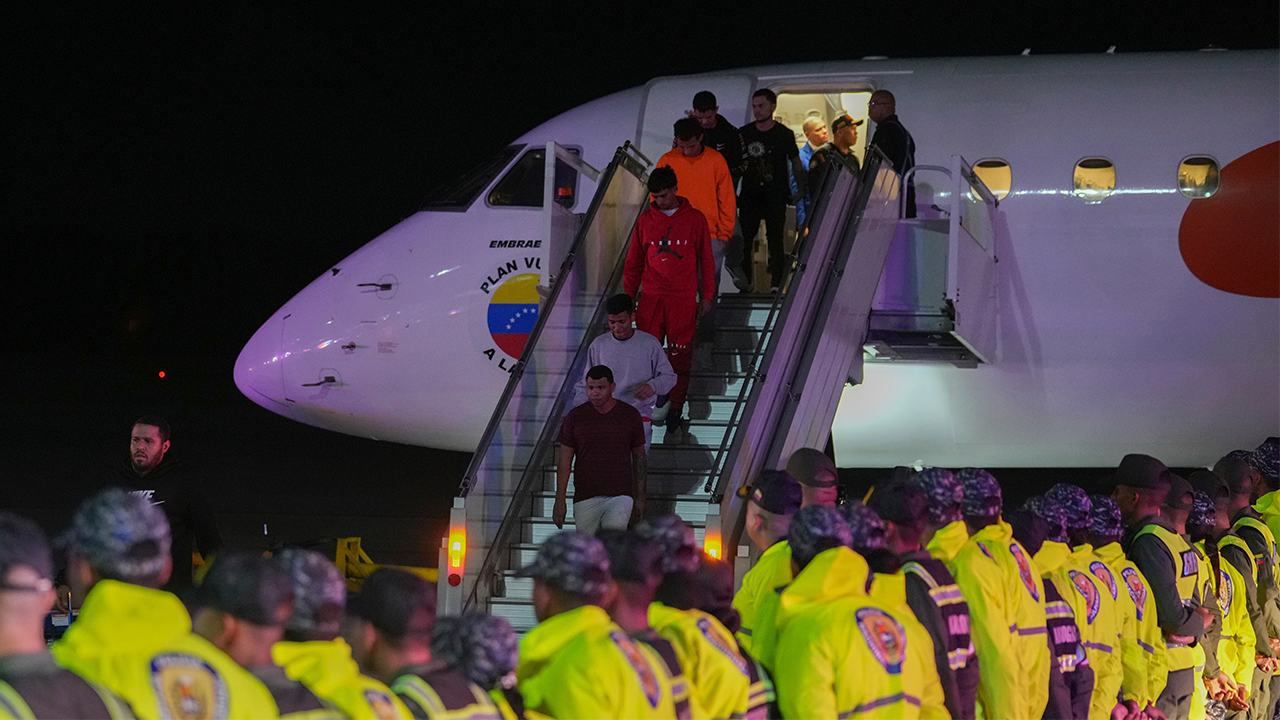World
Venezuelan planes sent to US for deportation flights return to country with nearly 200 deportees

Deportation of Venezuelan Migrants: An Overview
In a significant move, two Venezuelan aircrafts were dispatched to the United States, repatriating nearly 200 Venezuelan migrants, marking a crucial event in U.S.-Venezuela relations under President Trump’s deportation initiative. The migrants, residing in the U.S. without authorization, were flown from Fort Bliss, a U.S. Army base in El Paso, Texas, back to Caracas. This deportation signifies a potential easing of tensions between the two nations and is seen as a success for the U.S. in its efforts to repatriate unauthorized immigrants.
Historical Context of Venezuelan Deportations
Deportation flights from the U.S. to Venezuela had been largely halted for years, except for a brief resumption in October 2023 during the Biden administration. The impasse was partly due to Venezuela’s resistance to accepting its citizens, exacerbated by strained bilateral relations. The situation intensified as Venezuelan migrants began arriving in large numbers at the southern U.S. border starting in 2021, making them one of the largest groups entering the U.S. illegally.
Shift in Venezuela’s Stance: Cooperation and Dialogue
A recent shift in Venezuela’s approach came after Trump envoy Richard Grenell’s visit to Caracas. Venezuelan President Nicolás Maduro expressed a desire for a world based on "peace, understanding, dialogue, and cooperation." This newfound cooperation was marked by Venezuela’s agreement to accept its citizens and cover the costs of deportation, reflecting a strategic change in its foreign policy, possibly aimed at easing tensions and securing the release of American detainees.
Challenges and Criticisms: Legal Battles and Migrant Portrayal
The deportation process has faced legal challenges, notably a federal court blocking the transfer of Venezuelan migrants to Guantanamo Bay, Cuba. Lawyers argued that their clients were being targeted based on unfounded connections to the Tren de Aragua gang. Additionally, Venezuelan officials criticized the portrayal of migrants, emphasizing that most are law-abiding and hardworking, countering narratives that stigmatize their country.
Broader Deportation Efforts and International Agreements
Beyond Venezuela, the Trump administration has expanded deportation efforts, securing agreements with El Salvador and Guatemala to accept deportees. These deals underscore a strategic approach to manageable deportations, indicating a broader policy shift. The cooperation with Venezuela, including the release of American detainees, suggests a multifaceted strategy to address immigration through international cooperation.
Implications and Future Prospects for U.S. Policy
The resumption of deportations to Venezuela highlights the Trump administration’s emphasis on enforcing immigration laws through international collaboration. While the move eases immediate immigration pressures, it also sparks debates on human rights and due process. The success of such efforts may influence future administrations’ approaches to immigration, balancing domestic policy with international relations. As the U.S. navigates complex geopolitical landscapes, these deportations reflect a broader strategy to secure borders while fostering diplomatic ties.











